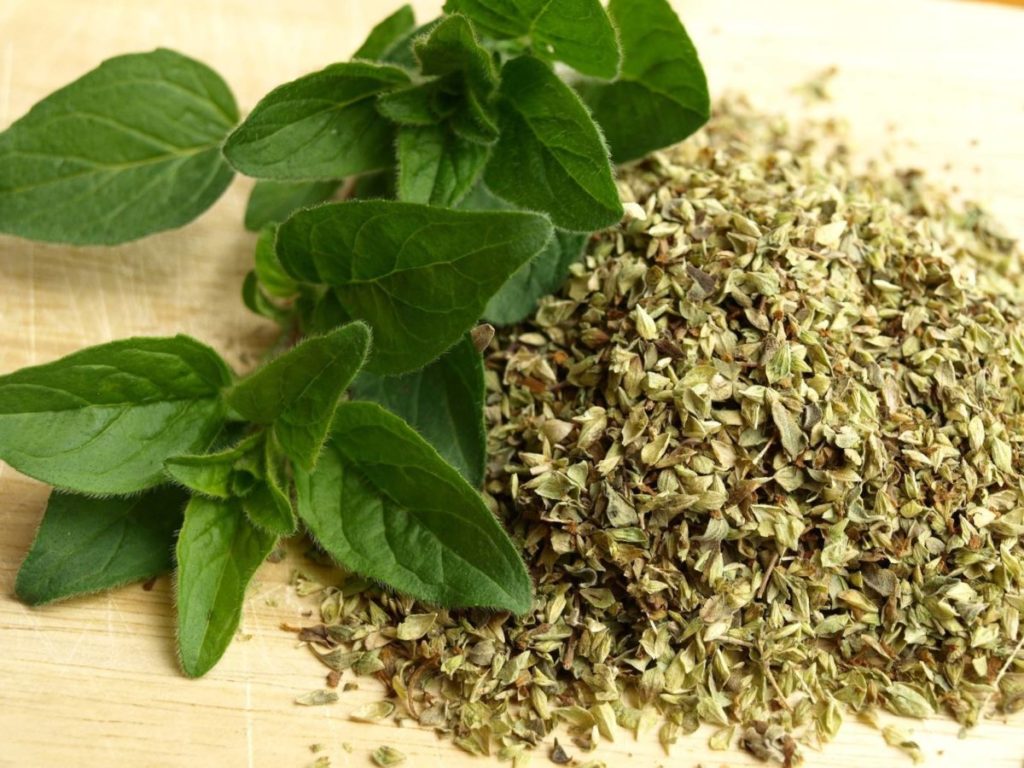Living off the grid can be a rewarding and fulfilling lifestyle, but it can also come with its share of unique challenges.
One of the most significant drawbacks is the limited access to modern medical facilities and resources.
However, nature has provided us with an array of herbs that have been used for centuries to treat common ailments.
These herbal remedies are not only effective but also sustainable and gentle on our bodies.
We will explore some of the most commonly encountered off-grid ailments and their natural remedies.
Whether you’re dealing with headaches, digestive issues, or skin problems, there is an herbal solution that can help you find relief without relying on pharmaceuticals.
Fever and Colds
For fever and colds, try ginger tea, elderberry syrup, and echinacea supplements. Ginger can help reduce fever, elderberry can help reduce the severity and duration of colds, and echinacea can boost the immune system.
Ginger tea, elderberry syrup, and echinacea supplements are all excellent options to consider.
Ginger tea can help reduce your fever and soothe your throat, making it a great choice for when you’re feeling under the weather.
Elderberry syrup can help reduce the severity and duration of your cold, and can also help to reduce inflammation and coughing.
Echinacea supplements can help boost your immune system, making it easier for your body to fight off the cold and fever.
All of these options are easy to incorporate into your daily routine, and can be enjoyed hot or cold depending on your preference.
Ginger tea can be made by steeping fresh ginger in hot water, while elderberry syrup can be taken as a supplement or mixed with water to create a soothing drink.
Echinacea supplements can be taken once or twice a day, depending on the severity of your cold and fever.
In addition to these natural remedies, it’s also important to make sure you’re getting plenty of rest, staying hydrated, and avoiding close contact with others to prevent the spread of your cold and fever.
By incorporating these natural remedies into your daily routine, you can help your body fight off illness and feel better faster.
Coughs and Sore Throats
For coughs and sore throats, try slippery elm lozenges, marshmallow root tea, and licorice root tea. Slippery elm can soothe the throat, marshmallow root can reduce inflammation, and licorice root can help reduce coughing.
When you’re struggling with a cough or sore throat, there are several herbal remedies that can provide relief.
Slippery elm lozenges are an excellent choice for soothing the throat and reducing inflammation.
The mucilage (a thick, gooey substance) found in slippery elm can help to coat and protect the delicate tissues of the throat, providing long-lasting relief from discomfort.
Marshmallow root tea is another effective option for reducing inflammation and promoting healing.
The mucilage in marshmallow root can also help to soothe the throat and reduce coughing.
Licorice root tea can help to reduce coughing and provide antiviral properties.
The bioflavonoids present in licorice root can help to reduce inflammation and boost the immune system.
By incorporating these herbal remedies into your daily routine, you can experience quick and effective relief from coughs and sore throats.
Digestive Issues
For digestive issues, try peppermint tea, chamomile tea, and ginger tea. Peppermint can help soothe the stomach, chamomile can calm the nervous system, and ginger can help reduce nausea and inflammation.
For digestive issues, consider trying peppermint tea, chamomile tea, and ginger tea as part of your self-care routine.
Peppermint tea has a soothing effect on the stomach, which can help to reduce discomfort and promote digestion.
Chamomile tea, with its calming properties, can help to relax the nervous system and reduce stress, which can also contribute to digestive issues.
Ginger tea, with its anti-inflammatory properties, can help to reduce nausea and inflammation in the digestive tract.
Ginger has natural antispasmodic properties that can help to ease digestive discomfort.
By incorporating these teas into your daily routine, you may find relief from digestive issues such as bloating, cramps, and diarrhea.
Headaches and Migraines
For headaches and migraces, try feverfew, butterbur, and ginger. Feverfew can help reduce the severity and frequency of headaches and migraines, butterbur can help reduce inflammation, and ginger can help reduce pain.
If you’re struggling with frequent headaches and migraines, consider giving feverfew, butterbur, and ginger a try.
These natural remedies have been shown to be effective in reducing the severity and frequency of headaches and migraines.
Feverfew, a perennial herb with purple flowers, contains a compound called parthenolide that has been found to reduce inflammation and relax blood vessels in the head, which can help alleviate headache pain.
Butterbur, a shrub native to Europe and Asia, has been used for centuries to treat a variety of ailments, including headaches and migraines.
The active compound in butterbur, sesquiterpene lactone, has been shown to reduce inflammation and improve blood flow to the head.
Ginger, a root commonly used in cooking, has anti-inflammatory properties that can help reduce pain and inflammation in the body, including the head.
When consumed in the form of tea or supplements, ginger can help reduce the frequency and severity of headaches and migraines.
By incorporating these three natural remedies into your diet and routine, you may find relief from your headache and migraine symptoms.
Skin Issues
For skin issues, try calendula cream, aloe vera gel, and witch hazel. Calendula can help soothe and heal skin irritations, aloe vera can reduce inflammation and promote healing, and witch hazel can reduce swelling and help prevent infection.
If you’re struggling with skin issues such as acne, eczema, or rosacea, there are several natural remedies that can offer relief and promote healing.
One of the most effective options is calendula cream, which is rich in antioxidants and anti-inflammatory compounds that can soothe and heal skin irritations.
Aloe vera gel, on the other hand, is known for its ability to reduce inflammation and promote healing, making it an excellent choice for skin issues.
Witch hazel can reduce swelling and help prevent infection, making it a versatile and effective solution for a variety of skin concerns.
By incorporating these natural remedies into your skincare routine, you can say goodbye to redness, inflammation, and irritation, and hello to healthy, glowing skin.
Allergies
For allergies, try nettle tea, butterbur, and stinging nettle supplements. Nettle can help reduce allergic reactions, butterbur can help reduce inflammation, and stinging nettle can help reduce histamine levels.
If you’re struggling with allergies, consider reaching for a cup of nettle tea, a supplement of butterbur, or stinging nettle pills.
These natural remedies have been shown to offer relief from allergic reactions, reducing inflammation, and lowering histamine levels.
Nettle tea, made from the leaves of the stinging nettle plant, has been traditionally used to calm allergic reactions and soothe irritated airways.
The tea contains compounds like boron, calcium, and potassium, which can help reduce inflammation and constricted blood vessels.
Drink nettle tea regularly to experience its benefits.
Butterbur, a plant native to Europe and Asia, has been used for centuries to treat allergy symptoms.
Its leaves and roots contain alkaloids that help reduce inflammation and alleviate congestion.
In a study published in the European Respiratory Journal, butterbur supplements were found to be as effective as standard allergy medication.
Take 50-75mg of butterbur extract twice daily to alleviate your symptoms.
Stinging nettle, a plant commonly found in Europe and North America, has been used in traditional medicine to treat various conditions, including allergies.
Its leaves, stems, and roots contain compounds that help reduce histamine levels, alleviate congestion, and soothe irritated airways.
Taking 300-500mg of stinging nettle supplements daily can help alleviate allergy symptoms like itching, sneezing, and runny nose.
Remember to consult with a healthcare professional before trying any new supplements, especially if you have any underlying health conditions or are pregnant or breastfeeding.
These supplements have the potential to interact with other medications and cause allergic reactions in some individuals.]]>
If you suffer from allergies, there are several natural remedies that may bring you relief.
Nettle tea, butterbur supplements, and stinging nettle supplements have been found to be effective in reducing allergic reactions and alleviating symptoms such as congestion, itching, sneezing, and a runny nose.
Nettle tea is made from the leaves and roots of the stinging nettle plant, which contains alkaloids that have anti-inflammatory properties.
Drinking nettle tea regularly may help reduce the severity of allergic reactions and alleviate congestion.
The recommended daily dose is three cups of tea per day.
Butterbur supplements are derived from the leaves and roots of the butterbur plant and contain compounds that inhibit the release of histamine, a chemical released during allergic reactions.
Studies have shown that taking 50-75 mg of butterbur extract per day can help reduce symptoms of allergies such as sneezing, itching, and a runny nose.
Stinging nettle supplements, also known as urtica dioica, are derived from the leaves and roots of the stinging nettle plant.
This herb has been found to have anti-inflammatory properties and can help alleviate symptoms of allergies such as itching and congestion.
The recommended daily dose is 300-500 mg per day.
Before trying any new supplements, it is important to consult with a healthcare professional to discuss potential allergies and medication interactions.
It is important to note that while these herbs can help alleviate symptoms of allergies, they may not completely eliminate them.
It is important to still take precautions such as avoiding known allergens and carrying an EpiPen if you have severe allergies.]
If you’re looking for natural ways to alleviate your allergies, consider trying nettle tea, butterbur supplements, and stinging nettle supplements.
These herbal remedies have been found to be effective in reducing allergic reactions and providing relief from symptoms such as sneezing, itching, and a runny nose.
Nettle tea is a powerhouse of natural remedies for allergies.
Drinking three cups of nettle tea per day can help reduce allergic reactions by reducing the release of histamine, an inflammatory compound that contributes to allergic reactions.
Stinging nettle supplements can provide relief from symptoms such as hives and itching.
However, it is important to consult with a healthcare professional before using any of these herbal remedies, especially if you have known allergies or take medication.
Nettle tea and butterbur supplements can interact with certain medications, such as blood thinners and diabetes medication, so it is important to discuss potential interactions with your healthcare provider.
Furthermore, while these herbal remedies can provide relief from symptoms, they may not completely eliminate allergies.
It is important to take precautions such as avoiding known allergens and carrying an EpiPen if you have severe allergies.
This will help ensure your safety and prevent a life-threatening allergic reaction.
Actionable information: If you are experiencing allergies, consider trying nettle tea, butterbur, or stinging nettle supplements to help reduce allergic reactions and alleviate symptoms.
However, consult with a healthcare professional before using these remedies, and take precautions such as avoiding known allergens and carrying an EpiPen if you have severe allergies.]]
For those suffering from allergies, herbal remedies such as nettle tea, butterbur, and stinging nettle supplements may offer relief.
Nettle has been shown to reduce the release of histamine, a compound that exacerbates allergic reactions.
Stinging nettle supplements can provide relief from symptoms like hives and itching.
While these remedies can be effective, it’s important to consult with a healthcare professional before using them, especially if you have severe allergies or are prone to life-threatening reactions.
Moreover, it’s essential to take precautions such as avoiding known allergens and carrying an EpiPen if you have a history of severe reactions.
By taking a proactive approach and combining herbal remedies with medical advice, you can help alleviate your allergy symptoms and minimize the risk of a life-threatening reaction.
Respiratory Issues
For respiratory issues, try eucalyptus oil, thyme, and sage. Eucalyptus can help open up airways and reduce congestion, thyme can help reduce bacteria and inflammation, and sage can help soothe and reduce inflammation in the respiratory system.
If you’re struggling with respiratory issues, consider reaching for eucalyptus oil, thyme, and sage.
These powerful essential oils offer a range of benefits that can help alleviate congestion, reduce inflammation, and even fight off bacterial infections.
Eucalyptus oil, for example, is known for its ability to open up airways and reduce congestion.
When inhaled, its refreshing scent can help to clear mucus and phlegm from the lungs, making it easier to breathe.
Eucalyptus oil has natural decongestant properties that can help to reduce swelling in the nasal passages and sinuses.
Thyme, on the other hand, is a natural antibacterial agent that can help to reduce inflammation and fight off infections.
When used in aromatherapy, thyme oil can help to kill off harmful bacteria in the respiratory system, reducing the risk of infection and promoting healing.
Sage oil can help to soothe and reduce inflammation in the respiratory system.
Its calming properties can help to relax the muscles in the chest and throat, making it easier to breathe and reducing the risk of inflammation.
Sage oil has natural antioxidant properties that can help to protect the body against damage from free radicals.
Overall, these essential oils offer a powerful and natural solution for respiratory issues.
By incorporating them into your aromatherapy routine, you can help to alleviate congestion, reduce inflammation, and promote healing in the respiratory system.
Eucalyptus oil, thyme, and sage essential oils are a powerful trio for addressing respiratory issues.
Eucalyptus oil acts as a natural decongestant, opening up airways and reducing congestion.
Its antibacterial properties also help to reduce inflammation and fight off infections.
Thyme oil, when used in aromatherapy, can kill off harmful bacteria in the respiratory system, minimizing the risk of infection and promoting healing.
Sage oil, with its calming properties, can help to soothe and reduce inflammation in the respiratory system.
Its antioxidant properties protect the body against damage from free radicals.
By incorporating these essential oils into your aromatherapy routine, you can help to alleviate respiratory issues and promote overall respiratory health.
Try incorporating them into your diffuser or inhaler to experience their therapeutic benefits.
Digestive Issues
For digestive issues, try peppermint oil, ginger, and marshmallow root. Peppermint can help reduce spasms and inflammation in the digestive system, ginger can help reduce nausea and inflammation, and marshmallow root can help soothe and protect the mucous membranes in the digestive system.
If you’re struggling with digestive issues, consider incorporating peppermint oil, ginger, and marshmallow root into your wellness routine.
These natural remedies offer a range of benefits that can help alleviate discomfort and promote digestive health.
Peppermint oil, for instance, can help reduce spasms and inflammation in the digestive system.
Its menthol content helps to relax the muscles in the gut, allowing for easier digestion and reducing symptoms like cramping and bloating.
Ginger, on the other hand, can help reduce nausea and inflammation in the digestive system.
Its anti-inflammatory properties can help to soothe the digestive tract, reducing inflammation and discomfort.
Ginger has a calming effect on the stomach, helping to reduce nausea and vomiting.
Marshmallow root is another powerful ingredient that can help soothe and protect the mucous membranes in the digestive system.
Its mucilage content forms a protective barrier, reducing irritation and inflammation.
This makes it an excellent remedy for conditions like heartburn, indigestion, and ulcers.
Overall, these three ingredients offer a comprehensive approach to addressing digestive issues.
By incorporating them into your wellness routine, you can help reduce inflammation, alleviate discomfort, and promote overall digestive health.
Simply add a few drops of peppermint oil, ginger, or marshmallow root to your food or drink, or take them in supplement form.
Peppermint oil, ginger, and marshmallow root are a powerhouse trio for tackling digestive issues.
Peppermint oil reduces spasms and inflammation in the digestive tract, providing relief from discomfort and inflammation.
Ginger has a calming effect on the stomach, minimizing nausea and vomiting.
Marshmallow root, with its mucilage content, forms a protective barrier that soothes and protects the mucous membranes in the digestive system.
This makes it an excellent remedy for heartburn, indigestion, and ulcers.
The mucilage also helps reduce inflammation and irritation, promoting overall digestive health.
Peppermint oil has antimicrobial properties that can help eliminate harmful bacteria and fungi that may be contributing to digestive issues.
By combining these three herbs, you can create a natural, holistic approach to alleviating digestive discomfort and promoting long-term digestive health.
Want More? Dive Deeper Here!
Hey there! If you’re the type who loves going down the rabbit hole of information (like we do), you’re in the right spot. We’ve pulled together some cool reads and resources that dive a bit deeper into the stuff we chat about on our site. Whether you’re just killing time or super into the topic, these picks might just be what you’re looking for. Happy reading!






